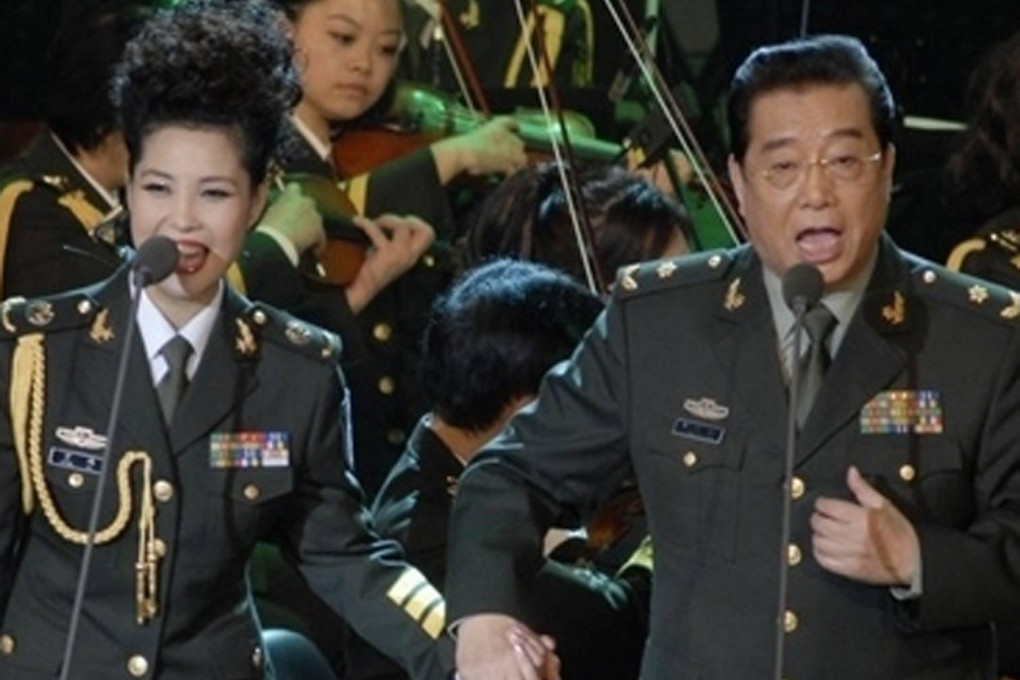Questions arise over need for PLA song and dance troupes

A recent order curtailing the activities of the PLA's pampered entertainers is widely seen as a move to ease discontent among regular soldiers and to shore up support for President Xi Jinping's drive to cut extravagance in the military.

Troupe members have been told not to appear on civilian talent shows hosted by local TV stations or perform at venues such as lounges or karaoke bars that would tarnish the PLA's image.
The circular also bans them from signing with entertainment agents or setting up studios for profit, engaging in blatant self-promotion or activities that deceive audiences. Those who disobey the new orders face severe punishment, according to the circular.
The PLA has included performers among its ranks since its founding in the late 1920s. As members of propaganda teams, performers played a key role in boosting morale. But the need to employ so many performers in peacetime has become a source of contention. Mainland media say there are about 10,000 entertainment soldiers now.
In recent months, the issue has come to a head after entertainers were implicated in a series of scandals. One case involved a well-known army singer who drove flashy cars and repeatedly broke traffic rules in Beijing; another involved a 14-year-old dance student in Henan province who was found to be on the payroll of a local army troupe as an entertainment soldier; and a third centred on the recent trial of the teenage son of renowned army singers Li Shuangjiang and Meng Ge for alleged gang rape.